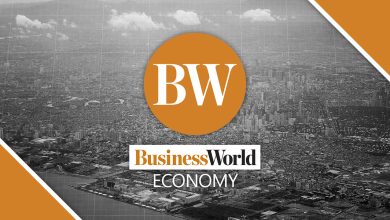How to be a CEO

(Part 3)
Given the vertiginous and rapidly changing technological environment in which business and similar organizations have to operate during these times of Industrial Revolution 4.0, we may have to re-examine the traditional route taken by those aspiring to reach top levels of management in the next 20 years or so. There should be an alternative to the practice of college graduates working first for some two to four years before enrolling in an MBA program of some prestigious business school here or abroad before starting in earnest to climb to the top. The name of the game today is continuous retooling, reskilling and upskilling up to the very end of one’s professional life. The sooner one gets into this almost lifetime cycle, the better.
I am glad that the business school in Barcelona where I spent some time in 1963 as a research assistant and case writer and another two years on a sabbatical leave as a visiting professor in 2006 to 2007 has once again pioneered an innovative program that can shorten the period of acquiring an academic training in business and management before one can start joining this lifetime of learning necessary in today’s highly technical and complex environment. Thanks to a recently new program introduced by the IESE Business School in its Madrid campus, any recent college graduate in whatever specialization who has developed critical thinking skills, effective communication and the ability to relate one science to another can enroll in a program that takes only 11 months to complete. IESE, like most other top business schools in the US and Europe, still retains its traditional MBA program that requires about two to four years of work experience before anyone can be admitted to the program. In fact, IESE was No. 1 in the world in 2021 in the quality of its MBA program in the ranking of The Economist and No. 3 in 2023 in that of the Financial Times. What is remarkable is that it has been No. 1 in its Executive Education program year in and year out from 2015 to 2023, according to the Financial Times. It has to be pointed out that executive education programs (whether open or customized) are the ultimate in reskilling, upskilling or retooling of practicing managers or executives. They are taken by those who are already in middle management and are very effective in helping those aspiring to reach the top.
Precisely because a master’s degree in business is not terminal and must be followed up by almost a lifetime of professional learning, the sooner a young college graduate is able to acquire the foundational knowledge and skills needed for this continuous learning process, the better for them, not only in getting settled in a full-time job but to start building a family. I personally find it socially undesirable for those graduating from college to postpone marriage until their early 30s or even 40s because of the amount of time and financial resources it takes to obtain an MBA. That is why I am glad to know some of our graduating students at the University of Asia and the Pacific (as well as other Philippine universities) are taking an interest and enrolling in the Master in Management (MiM) program at the IESE Business School in Madrid.
This MiM is an 11-month program that admits qualified applicants who are fresh graduates from a college program or with 0 to two years of work experience. Thus, the average age of those who have been admitted in the first few years of the program is 23 years, young enough for those belonging to Generation Z to start their full-time job before they are 25 and to think of marriage before the age of 30, thus contributing to avoiding the demographic suicide that many developed countries have already committed (including China). Like all the other programs at IESE, 80% of the curriculum is delivered through the case method, partly making up for the lack of work experience. The program’s core courses build a solid foundation of business management knowledge on key themes ranging from marketing and finance to strategy and economics. Projects allow the participants to integrate, connect and apply what they learn. Practical experience and complementary activity unlock knowledge of how different areas are combined to create both economic and noneconomic value within companies. The entire course lasts 11 months. After the last Core Period (Period 5), students can attend an optional period in some other foreign country. During this period, the MiM students can join a social entrepreneurial project in a developing economy, do their internship in a company of their choice or start working in a full-time job. In today’s exchange rate, the tuition cost is P2.7 million, which can be covered partially by a student loan or a scholarship for deserving students.
Alternative programs are offered by another top European business school, INSEAD in France, which offers a Master in Management program that lasts 14 to 16 months and requires practically no work experience (average working experience of participants is 0.8 year and the average age is 22). The cost is P2.9 million. Also highly rated is the one-year MBA program of IMD in Lausanne, Switzerland. This requires, however, three to eight years of work experience with the average age of participants at 25 to 34 years. Equivalent programs offered by local business schools are those of the Asian Institute of Management called the International Master in Business Administration, a 12-month full time program, requiring at least two years of work experience and costing about P1.44 million. Also, more traditional MBA programs (requiring work experiences) are those of De La Salle University (two years, P137,000); Ateneo de Manila University (two years and four months, P352,355); the University of the Philippines (one year and eight months full time, P189,000); the University of Sto. Tomas (two years, P98,450); and San Carlos University in Cebu (three years part time, P105,000). As indicated above, the costs of obtaining a masteral degree in business in the top European business schools are prohibitive for most Filipino centennials (the US business schools can be even more expensive). Thus, we can expect most of our young professionals aspiring to rise to top management positions to continue enrolling in the traditional MBA programs that require some years of experience. The only exception is the Master of Science in Management program of the University of Asia and the Pacific, which has been offered since 1989. Those high school graduates entering an undergraduate program in business are given the option of taking a four-year course that culminates with a bachelor’s degree in management or a five-year program, after which they obtain a Master in Science in Management.
The main message I am sending to Generation Z is to learn the fundamentals of management as early as possible in your professional career because you have no alternative but to continue taking numerous short courses, seminars, workshops and tutorials as you rise the management ladder. Those who specialized in their undergraduate years in subjects directly related to business or management may not even have to take a masteral program. They have enough fundamental knowledge to be able to effectively upskill, reskill and retool themselves along the way. Those who took up engineering , sciences, philosophy, law and other nonbusiness subjects are the ones well-advised to enroll as early as possible in an equivalent Master in Management program that will provide them with the fundamental knowledge and skills in business and management so they can rise to the top of management by constant reskilling and upskilling themselves through the numerous executive education programs that are increasingly being offered by the leading business schools here and abroad.
(To be continued.)
Bernardo M. Villegas has a Ph.D. in Economics from Harvard, is professor emeritus at the University of Asia and the Pacific, and a visiting professor at the IESE Business School in Barcelona, Spain. He was a member of the 1986 Constitutional Commission.




